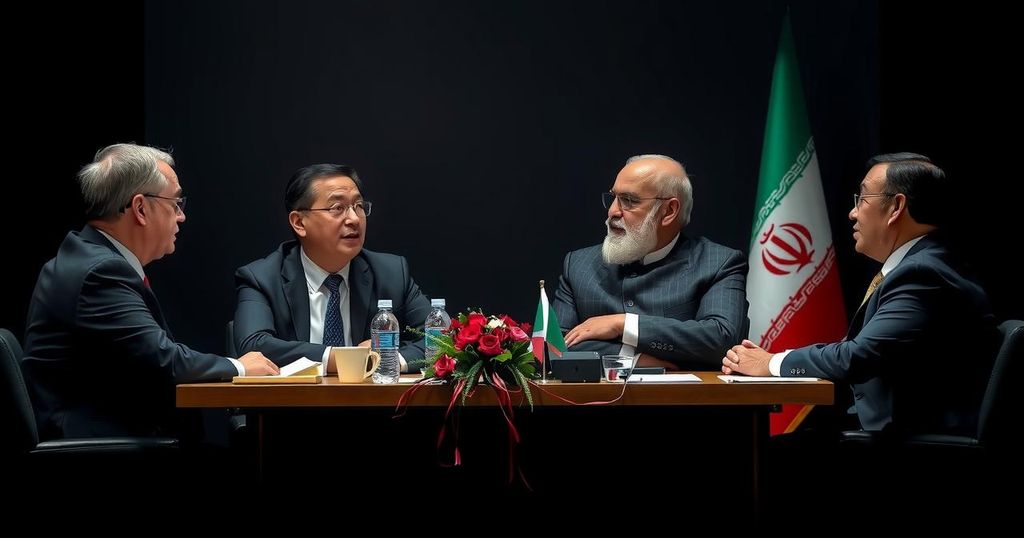Netanyahu and Trump Share Vision on Iran Amid Ongoing Regional Tensions

Israeli Prime Minister Benjamin Netanyahu stated that he and U.S. President-elect Donald Trump have aligned views on Iran. Despite increased military tensions, Netanyahu expressed optimism for strengthened U.S.-Israel relations. Recent Israeli airstrikes have resulted in numerous civilian casualties in Lebanon and Gaza, raising humanitarian concerns amid calls for diplomatic intervention from the new administration.
During a recent statement, Israeli Prime Minister Benjamin Netanyahu expressed that he and U.S. President-elect Donald Trump possess a shared understanding regarding the Iranian threat. Netanyahu indicated that he has engaged in three discussions with Trump since the election, aimed at strengthening the alliance between the two nations. He conveyed confidence in their mutual perception of the dangers posed by Iran and optimism regarding the opportunities for peace and collaboration between Israel and its neighbors. The past year has been marked by escalating tensions between Israel and Iran, characterized by reciprocal military actions, particularly following the Hamas attacks. Iranian proxies, such as Hamas and Hezbollah, have conducted operations against Israeli and Western interests in the region as part of a broader coalition in response to the ongoing conflict in Gaza. With the impending transition in U.S. leadership, the international community is closely observing how Trump’s administration will influence the dynamics of this ongoing conflict and its relationship with Israel. Netanyahu’s remarks come at a time when airstrikes in both Lebanon and northern Gaza, claimed by Israel, resulted in significant casualties, including children. Reports indicate a devastating airstrike in Aalma village near Beirut, which reportedly targeted civilians rather than combatants. In addition, northern Gaza has witnessed further Israeli strikes, escalating the humanitarian crisis as experts warn of imminent famine in the region. There is mounting concern over how the new U.S. administration under Trump will approach these complex issues in the Middle East.
The context of this article centers around the evolving geopolitical landscape as leadership transitions occur in the United States. Particularly, the relationship between Israel and Iran has become increasingly strained, with military conflicts escalating through proxy forces and direct actions. Benjamin Netanyahu’s assertion of alignment with Donald Trump’s views on Iran underscores the significance of U.S.-Israel relations, particularly in light of recent military engagements involving both countries and their respective allies in the Middle East. As new diplomatic efforts and strategies are anticipated under Trump’s presidency, implications for peace and security in the region remain uncertain.
In conclusion, Benjamin Netanyahu underscored a shared vision with Donald Trump regarding the Iranian threat, aiming for closer cooperation between Israel and the U.S. This perspective is crucial as military tensions in the region persist, particularly following recent strikes in Lebanon and Gaza causing civilian casualties. The international community is now watching to see how the Trump administration will engage with these conflicts and influence future peace initiatives in the Middle East.
Original Source: news.sky.com








